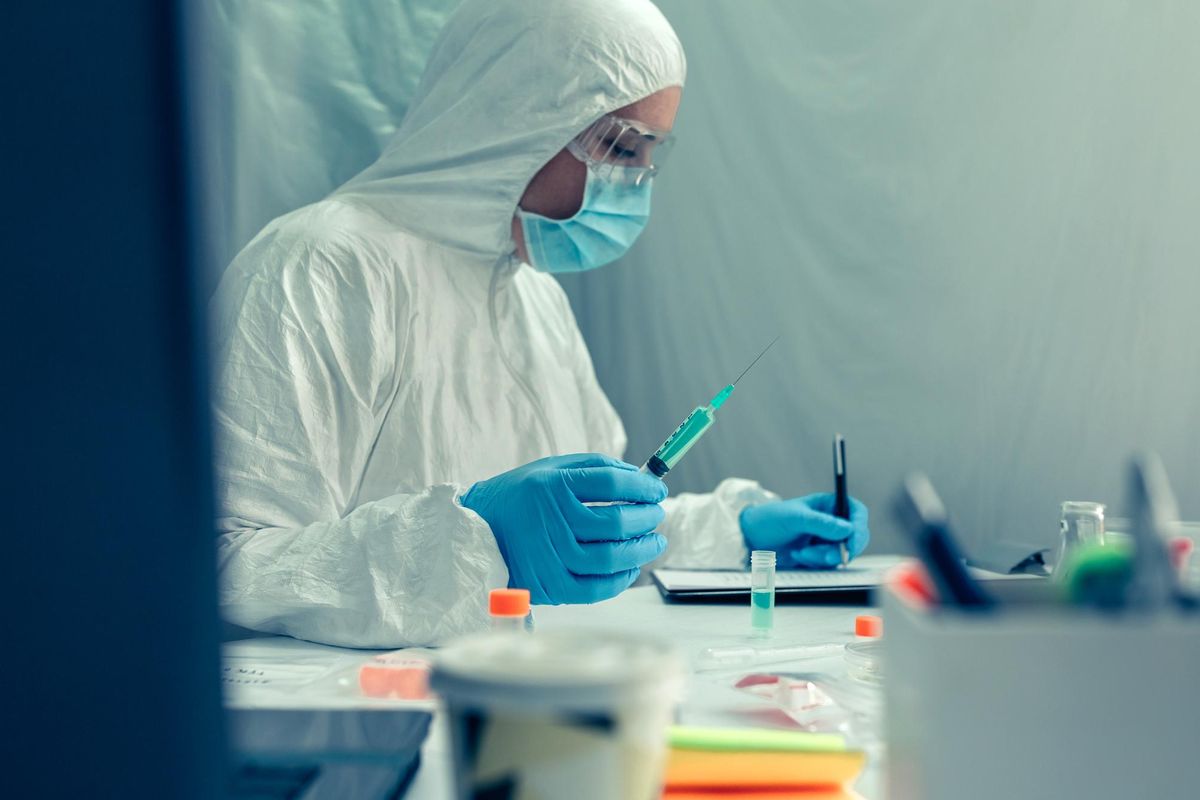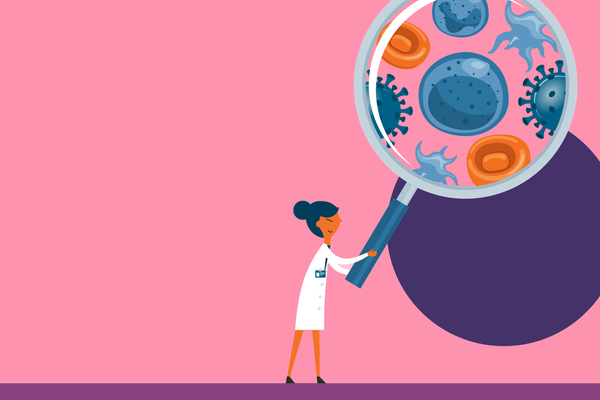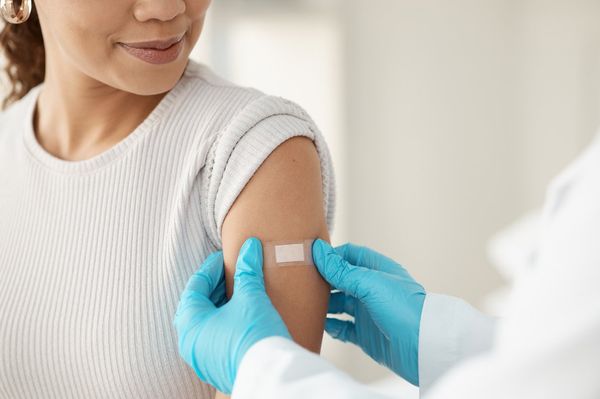Reviewed by Sabra L. Klein, Ph.D.
Sabra L. Klein is a professor at the Johns Hopkins Bloomberg School of Public Health who studies how sex and gender affect the immune system. HealthyWomen spoke with her about how vaccines work, why it's crucial to get all doses of a vaccine and the importance of herd immunity.
HealthyWomen: How do vaccines work?
Sabra L. Klein: Broadly speaking, vaccines give the immune system a sample of a pathogen (a virus, bacteria or parasite) in order to stimulate an immune response without inducing infection.
They are designed to generate a specific immune response to a pathogen so that when you come in contact with that pathogen, you already have an army of immune cells (called memory cells) in place that will recognize and destroy it.
It can take weeks for the immune system to mount a protective response to a pathogen. Vaccines give your immune system the time it needs to generate this response, so the appropriate cells are in place and ready to protect you within hours or days of exposure to the pathogen.
When you're unvaccinated and your immune system encounters a pathogen for the first time, you may get very sick (and need a lot of time to recover) because it takes about a month to generate the protective immune response needed to overcome the infection.
HealthyWomen: What about the COVID-19 vaccines? How do they work?
Sabra L. Klein: The two COVID-19 vaccines authorized for emergency use are mRNA, or messenger RNA, vaccines. They contain a sequence of a piece of SARS-CoV-2, the virus that causes COVID-19. This sequence contains instructions for making a spike protein that sits on the surface of the virus. Spike proteins are like big red buttons — easy for the immune system to see.
The COVID-19 vaccines give our cells the message to make this virus spike protein. Once our cells start spitting the spike protein out, the immune system spots it, identifies it as a foreign intruder and starts attacking it.
The immune response generated by these vaccines is very diverse, meaning you're going to have lots of different types of memory immune cells in place to protect you after receiving the vaccine.
Presumably, that's why the COVID-19 vaccines are so effective. Not only does your immune system recognize the virus, but memory cells block every potential escape route so the virus is unable to slip through and replicate.
HealthyWomen: Why do some vaccines, like the ones for COVID-19, HPV and shingles, require more than one dose?
Sabra L. Klein: It's often about the platform of the vaccine. Sometimes it takes more time and more antigen — that sample of the virus — to generate a robust immune response.
Another factor is exposure and the buildup of immunity over time. We've all been exposed to the flu, so a single dose of the annual influenza vaccine is enough to boost our existing immunity. But our immune system has never seen the virus that causes COVID-19. It takes more to go from zero to 60 than it does if you're already going 30.
HealthyWomen: Why is it so crucial to get all doses of a vaccine?
Sabra L. Klein: When you don't get all the doses of a vaccine, you're not completely immune. And partial immunity allows a virus to mutate and escape your immunity and to spread.
If we all walk around with partial immunity, we may drive the evolution of escape mutants — viruses that can escape that little bit of immunity from only one vaccine dose and replicate. You can still transmit those escape mutants to another person even though you were partially vaccinated. And if that person is not vaccinated, they might get very sick.
But with complete immunity, you can eliminate replication and transmission so that no strains of the virus will be able to escape from you and spread to another person.
HealthyWomen: What about herd immunity? Why should it be achieved through vaccination rather than infection?
Sabra L. Klein: Herd immunity is about having enough people in a population who are immune to the virus to stop transmission of that virus.
There are many reasons why public health officials always prefer to establish herd immunity through vaccination rather than infection. For one thing, you're significantly reducing morbidity and mortality — the number of people who get sick and die.
While most individuals who've been infected with COVID-19 are likely to have immunity, getting sick has a real cost. That can be not being able to go to work, not being able to care for family, being hospitalized.
You're also not putting as much of a strain on the healthcare system with herd immunity through vaccination. It's unbelievably disturbing to think that in Los Angeles, probably one of the richest counties in the nation, they're running out of oxygen. They are having to make very hard decisions about who gets oxygen for this disease.
HealthyWomen: Is there anything else you want people to know about vaccines?
Sabra L. Klein: First, I want people to understand that while the COVID-19 vaccines were developed quickly, these types of vaccines are not new. They've been under study and evaluation for many years. Based on the work that was done in clinical trials, we know these vaccines are safe and effective.
Secondly, I want to reassure women in particular about side effects from the COVID-19 vaccines. There's ample evidence that women tend to report more adverse reactions to vaccines. Whether that's women being more in touch with their bodies, more comfortable reporting these types of reactions or something biological, we don't know.
That's why I want women to know that post-vaccine symptoms like soreness, fever and headache are caused by the mounting of your immune response. They're signs your immune system is doing exactly what it's supposed to do.
While you may not feel well for 24 hours after getting the COVID-19 vaccine, you don't have to worry about whether what you're experiencing is normal. It absolutely is.
This resource was created with support from Merck and Pfizer.







